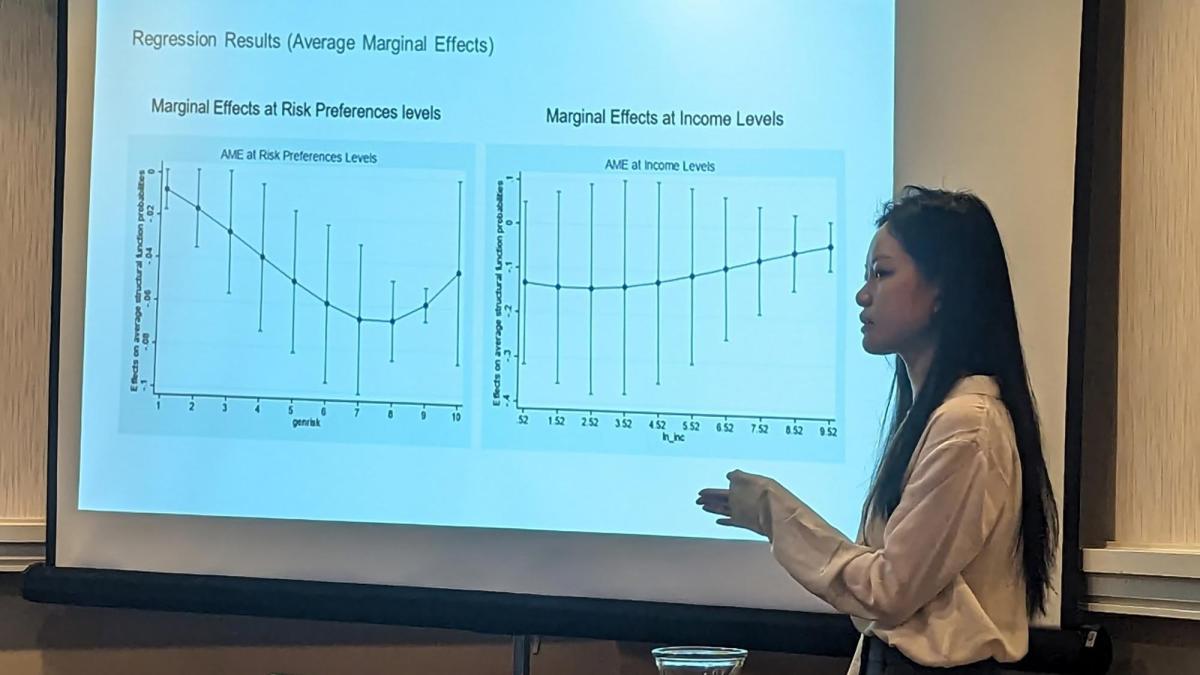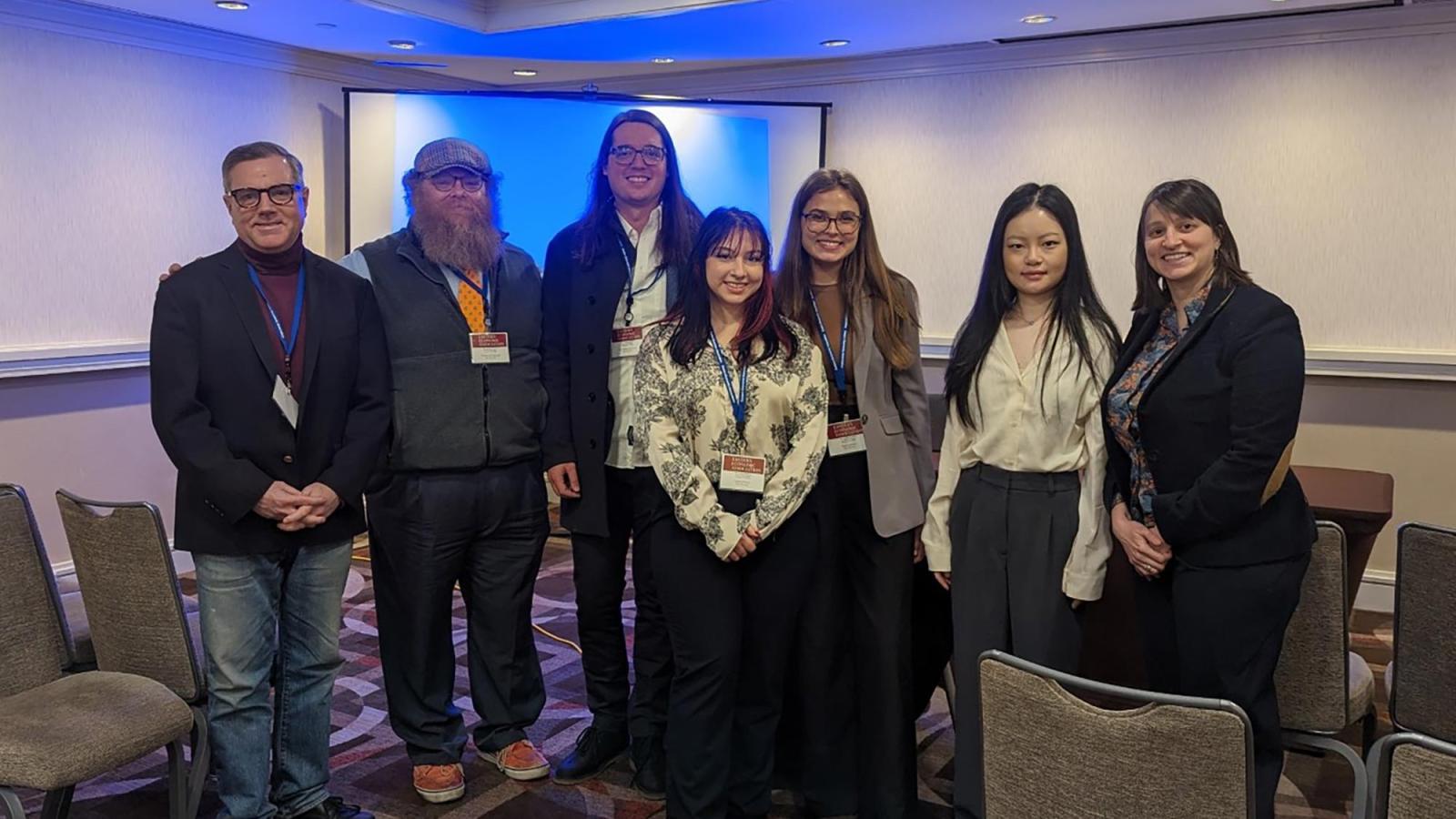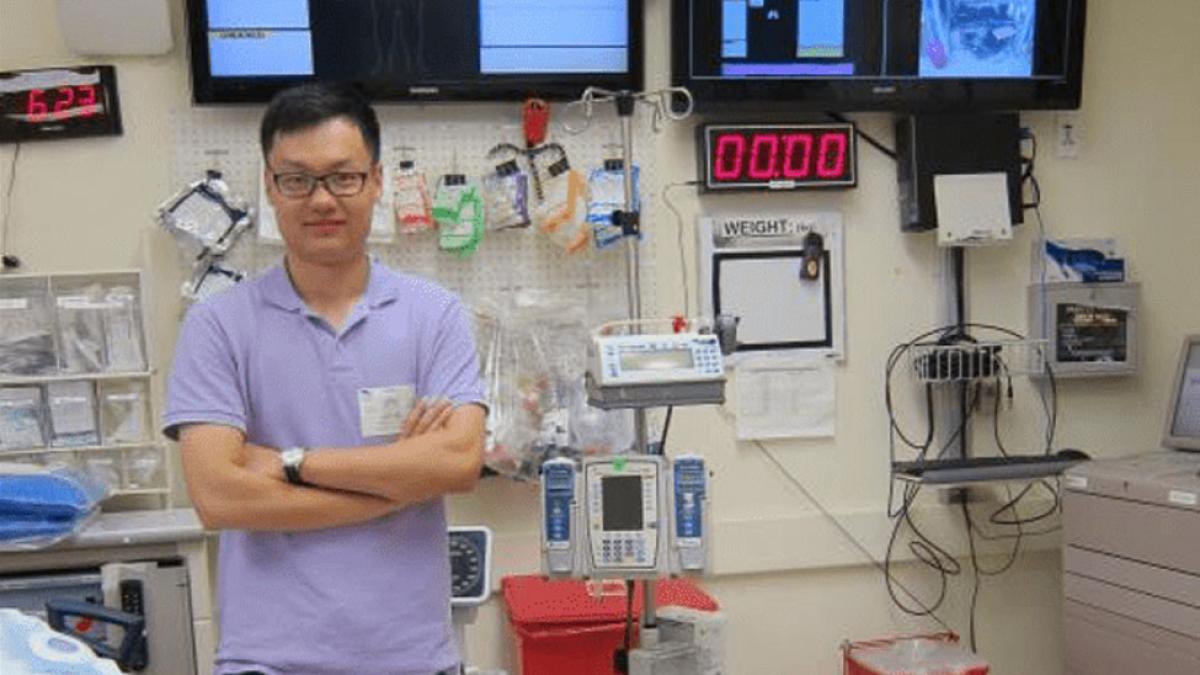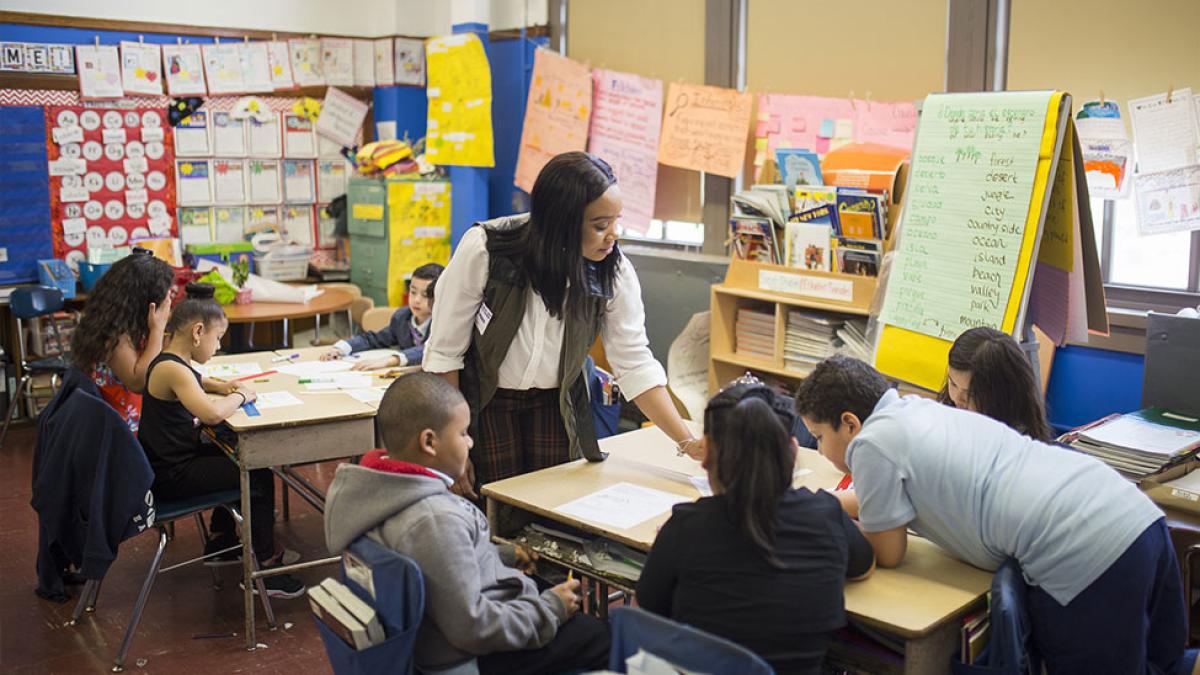
Delving Into the Data

Does an individual’s willingness to take risks when it comes to general life decisions impact whether they decide to have children?
This is the question that Dyson economics student Hanyu Li ’23 has set out to answer. While much academic research has studied the relationship between general risk tolerance and financial decisions, there is significantly less around risk tolerance and fertility decisions; in other words, whether a person’s overall appetite for risk affects if they decide to have children.
“This particular question is not heavily researched— people tend to study the impact of income on fertility or risk preferences on financial decisions but not risk preferences on fertility,” says Hanyu.
Collaborating with her faculty mentor, Dyson Assistant Professor of Economics Mary Kaltenberg, PhD, the duo first began to tackle this question while Hanyu was enrolled in Kaltenberg’s Economics 585: Applied Econometrics, a master’s level econometric course. Hanyu, despite being an undergraduate, excelled in the course and wished to continue her research, which she was able to do through the Office of the Provost’s Undergraduate Student-Faculty Research Award

At the outset, Hanyu and Kaltenberg stressed it was important that their work examines having children within an economics framework, as opposed to analyzing through a biological or sociological lens.
“In the field of economics and fertility, having children is thought of utility maximizing behavior, like good consumption,” says Hanyu. “Utility maximizing behavior just means that you try to attain the highest level of satisfaction from your economic decisions—like buying things, or even having children. In our research, we modeled children as a financial instrument.”
From this framework, Hanyu hypothesized that having children could be more preferred amongst risk-averse individuals; reasoning that children (exhausted parents might argue this) contribute to overall utility, and act as a bulwark against other, constantly fluctuating forms of utility like vacations or fancy cookware.
“In that way, we can think of children as an insurance mechanism,” she notes. “When you have uncertainty in consumption, there will be fluctuation in your utility. Children can act as an insurance to hedge against that.”
With Kaltenberg signed on as the Principal Investigator, Hanyu began her analysis, which currently involves a literature review as well as analyzing data sets, including a very helpful data set from a German institute. Kaltenberg noted that often it can be difficult for undergraduate students to obtain strong data and was impressed with Li’s drive in seeking out and attaining this particular data set.
“Hanyu found a German individual-level panel data. What that means is that you’re able to follow people over time, and it has a lot of information about individuals that is usually hard to get access to,” said Kaltenberg. “What’s unique about the data set is that it’s really trying to understand you, your person, your level of risk. It asks a series of questions that tries to associate your level of risk tolerance in different domains. It could be that the two are still very correlated.”
Although Hanyu is still working through the data—using several advanced, graduate-level techniques to analyze and synthesize the information—she’s been able to formulate preliminary results; determining that her original hypothesis has been supported, in that married individuals who are more risk-averse would be more likely to have children.
It is really nice to have such an opportunity, especially as an undergraduate, to be exposed to a professional research environment.
“We have found that our results are consistent with the hypothesis that risk aversion will increase the probability of having children—no matter how women evaluate things, the marginal effect is about -6.5%,” says Hanyu. “A one-point increase in the scale of risk tolerance, would decrease the probability of having children by 6.5%.”
To further hone the research, Hanyu had an opportunity to present her work at the Eastern Economic Association Conference, gaining valuable insight and feedback from economists.
“EEA was the first conference that I presented at,” said Hanyu. “It is really nice to have such an opportunity, especially as an undergraduate, to be exposed to a professional research environment. I got invaluable feedback concerning model specification and how my research question could be applied to countries with different economic conditions and abortion laws.”
Hanyu and Kaltenberg are excited to continue their work—hoping to have it published in a master’s level journal, contributing to the academic literature, and thinking through possible policy recommendations. They both credit the Provost’s Undergraduate Student-Faculty Research program for helping provide the time and resources necessary to conduct quality research.
“What’s been nice is that it’s been a continuation from the master’s course—having that continuity allowed her to delve deeper into the theory and research itself so that it can become publishable,” says Kaltenberg. “It’s been really great to work with Hanyu—with her particularly, because she takes a lot of initiative.”
More from Pace
“If we create technology that helps emergency care personnel make better, faster decisions, we can literally save lives.” Professor Zhan Zhang would know—he’s spent almost a decade doing research in emergency care technology. At Pace, he’s empowering ambitious young innovators to improve life through novel tech solutions.
Students in Dyson’s Industrial Media Production class put their skills to the test as they partnered with the Berkshire Theatre Group, a renowned regional theater that was staring into the abyss after the COVID-19 pandemic.
Through interdisciplinary collaboration, the School of Education and Dyson's Film and Screen Studies departments are helping a major school district in Florida tackle the challenges of today’s teacher shortage head-on.


